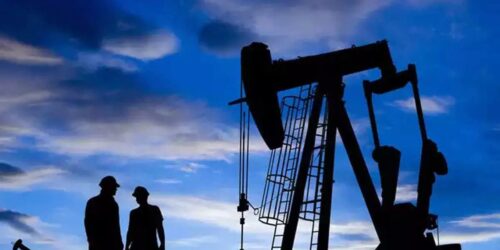The Petroleum Division has settled over a decade-old controversy about deemed duty collected by refineries, saying that they have invested Rs200 billion in projects.
The ministry said that they had collected Rs200 billion and invested the same amount in their projects.
The deemed duty collection has been a controversial subject for the refineries. Critics have said that they received billions of rupees but did not invest in plant upgrades.
The Cabinet Committee on Energy (CCOE) has raised several questions over the proposed Refinery Policy 2021. The major question is how much deemed duty the oil refineries had collected and what was the total investment in upgrading the projects out of the total receipts.
In response to the observations of the cabinet body on energy, in a meeting held on August 20, 2021, the Petroleum Division recalled that deemed duty (tariff protection) was introduced post-abolition of the guaranteed return formula (10-40%) in 2002 with the purpose of running the refineries on a self-financing basis, offsetting losses and expanding/ upgrading.
A 10% tariff protection was introduced for diesel and 6% for JP-4, kerosene and light diesel oil.
However, in 2007-08, the tariff protection was limited to diesel and was slashed to 7.5%, effectively reducing the tariff protection to around 2% for the overall production slate.
Since then, the refineries have made investment/ capital expenditure of Rs200 billion against the collection of deemed duty.
While the policy provides incentives in the form of tariff protection, which could go up to 40% of the funds required for upgrade, the actual contribution from tariff protection maybe around 25-30% of the project cost, based on cost estimates and multiple pricing scenarios.
The rest of the capital must be borrowed or invested by the sponsors. Since the refining business is capital-intensive and plant upgrade will cost around $4.2 billion, the debt portion will also be significant.
In order to ensure sustainable operations while meeting the debt obligations, the refineries require a tax holiday to the extent of their revenue from the upgrade projects after commissioning.
It may be noted that the tax holiday is not applicable to the current refinery operations but only to the revenue coming from upgrade/ modernisation/ expansion.
Upfront utilisation of the incremental tariff protection revenue was previously provided in the policy, wef January 1, 2022, however, under the new proposed arrangement, this amount can only be used by the refineries for plant upgrade after the award of EPC contract, which is expected by the start of 2024 (sub-section 9.2.3.9 of the policy).
This will ensure (i) the refineries incur the cost from their own resources prior to utilising funds through tariff protection, (ii) accurate costing as FEED would already have been carried out, and (iii) funds generated through tariff protection will be available for EPC and onwards, which represents the major spending phases.
The inland freight equalisation margin (IFEM) is a component of the end-consumer price, managed by the Oil and Gas Regulatory Authority (Ogra), and is an adjustment mechanism devised to maintain equal prices of petroleum products throughout the country.
Any variation in ex-refinery prices due to operational differences (location, product specification, etc) is adjusted through the IFEM mechanism by incorporating different components.
For example, the refineries, which were initially not producing Euro-II diesel and were not entitled to the Euro-II diesel price, were allowed to charge Pakistan State Oil’s (PSO) import price of Euro-II diesel in order to keep uniformity in diesel prices across the country.
Subsequently, they had to pass on the surplus differential to the consumers under the IFEM through Ogra, whereby the corresponding IFEM was reduced accordingly.
Hence, the IFEM procedure will prevail in case of revision made in tariff rates of motor spirit and high-speed diesel effective from July 1, 2021 to December 31, 2021.
In the draft policy, the Petroleum Division said that tax exemption had been proposed for the refinery-linked infrastructure projects (Single Point Mooring/ terminal/ jetties) while specific project(s) will require approval of the relevant authority(ies).





